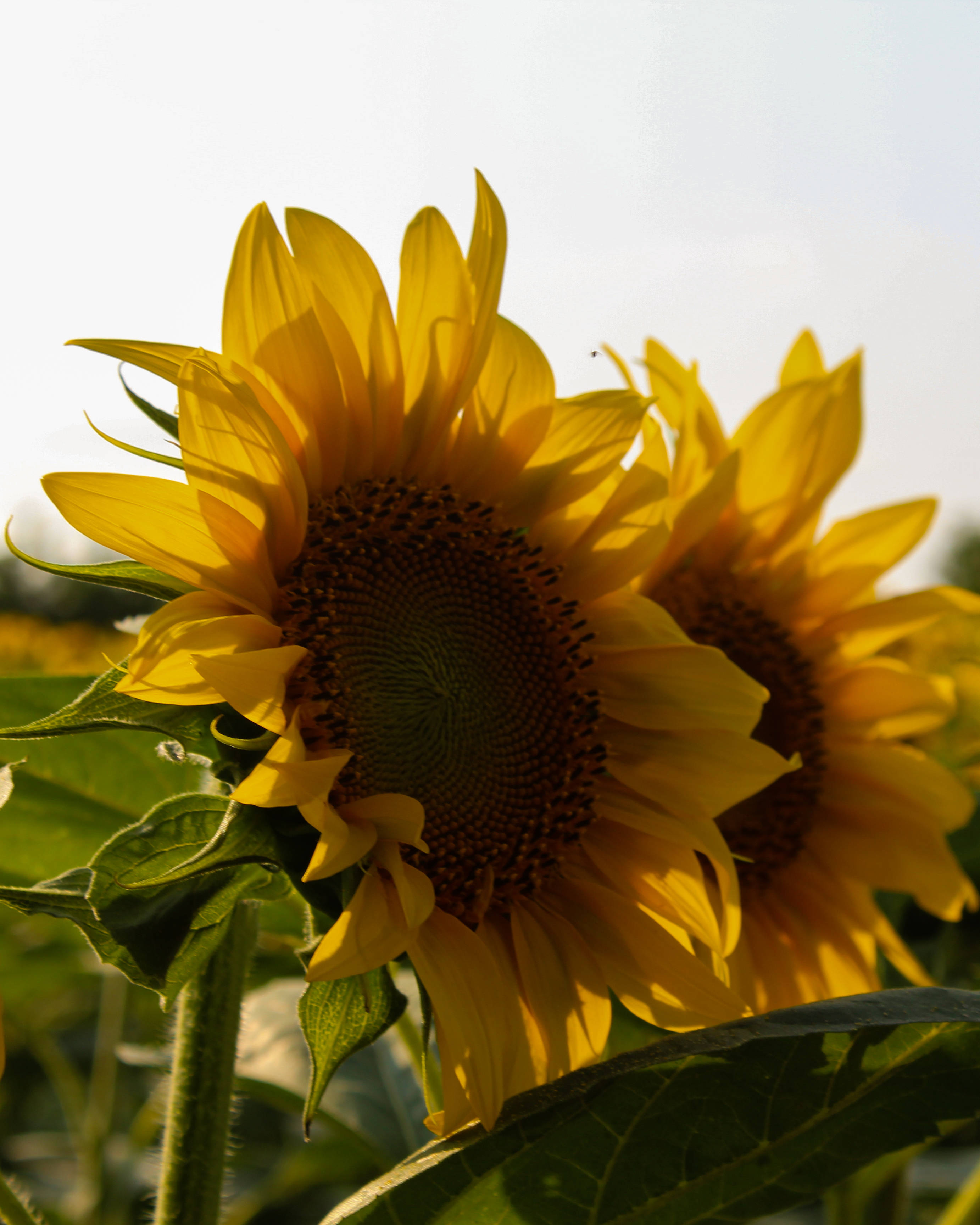Floret Joys: The Ultimate Guide To Elevating Your Floral Adventures
When it comes to floret joys, there’s so much more than meets the eye. Imagine walking into a garden where every bloom tells a story, and each tiny floret dances with joy. It’s not just about flowers; it’s about transforming spaces, creating memories, and embracing the beauty of life in its most vibrant form. Whether you’re a gardening enthusiast, a florist extraordinaire, or simply someone who loves adding a touch of nature to their world, floret joys are here to inspire and delight.
Now, before we dive deep into the world of floret joys, let’s take a moment to appreciate how these little wonders have been making waves in the floral industry. From backyard gardens to high-end floral arrangements, florets bring an element of charm and elegance that’s hard to resist. They’re like the unsung heroes of the plant kingdom, working tirelessly behind the scenes to create breathtaking displays that leave us in awe.
But why stop at appreciation? In this guide, we’ll uncover the secrets of floret joys, explore their versatility, and discover how they can enhance your life in ways you never imagined. So grab your favorite gardening gloves, pour yourself a cup of tea, and get ready to embark on a journey filled with color, creativity, and endless possibilities.
- Unveiling The Mysteries Of February 19 Zodiac Pisces With A Twist
- San Diego Uber Driver Forum Your Ultimate Guide For Success
What Are Floret Joys?
Let’s start with the basics. What exactly are floret joys? Simply put, floret joys refer to the small, individual flower heads that make up larger blooms. Think of them as the building blocks of beauty, working together to create stunning displays that captivate the senses. These tiny yet powerful elements are found in a variety of plants, from daisies and sunflowers to chamomile and zinnias.
But here’s the kicker: floret joys aren’t just about aesthetics. They play a crucial role in pollination, attracting bees, butterflies, and other beneficial insects to your garden. This means that by embracing floret joys, you’re not only enhancing your surroundings but also contributing to the health of the ecosystem. Now that’s what I call a win-win situation!
The History and Evolution of Floret Joys
From Ancient Gardens to Modern Landscapes
Believe it or not, floret joys have been around for centuries. In ancient times, they were revered for their medicinal properties and symbolic meanings. For instance, chamomile florets were used in traditional medicine to treat a variety of ailments, while daisy florets were often associated with purity and innocence.
- Atlanta Rubbing The Ultimate Guide To Exploring And Understanding
- What Nationality Is Abraham Williams Unveiling The Truth Behind The Name
As time went on, the use of floret joys evolved, with gardeners and florists discovering new ways to incorporate them into their designs. Today, they’re a staple in modern landscaping, adding texture and depth to gardens, parks, and even urban spaces. The beauty of floret joys lies in their adaptability, allowing them to thrive in a wide range of environments.
Why Floret Joys Matter
Boosting Biodiversity and Environmental Health
In a world where biodiversity is under threat, floret joys offer a glimmer of hope. By planting flowers rich in florets, you’re creating a haven for pollinators, which are essential for the survival of many plant species. This, in turn, supports the overall health of the environment, ensuring that future generations can enjoy the beauty of nature.
- Pollinators love floret-rich plants because they provide a reliable source of nectar and pollen.
- These plants help increase biodiversity by attracting a wide range of insects and animals.
- They contribute to soil health by preventing erosion and improving water retention.
Types of Plants with Floret Joys
Now that we’ve established why floret joys are important, let’s take a look at some of the most popular plants that feature these delightful little blooms. From classic favorites to lesser-known varieties, there’s something for everyone to enjoy.
Sunflowers: The Giants of the Garden
Sunflowers are perhaps the most iconic example of floret joys in action. Their massive heads are made up of hundreds of tiny florets, each one playing a vital role in the plant’s growth and reproduction. Not only are they stunning to look at, but they also provide a valuable food source for birds and other wildlife.
Daisies: Simplicity at Its Finest
Who doesn’t love a daisy? These cheerful blooms are a staple in gardens around the world, thanks to their simple yet elegant design. Each daisy is composed of numerous florets arranged in a circular pattern, creating a sense of harmony and balance.
How to Cultivate Floret Joys in Your Garden
Choosing the Right Plants
When it comes to cultivating floret joys, selecting the right plants is key. Look for varieties that are well-suited to your climate and soil conditions, and consider factors such as sunlight requirements and watering needs. Some popular options include:
- Zinnias: Known for their vibrant colors and long blooming season.
- Chamomile: Perfect for adding a touch of tranquility to your garden.
- Coreopsis: A hardy plant that thrives in a variety of conditions.
Soil Preparation and Maintenance
Preparation is everything when it comes to gardening. Start by testing your soil to determine its pH level and nutrient content, then amend it as needed to create the perfect growing environment for your floret joys. Regular maintenance, including watering, weeding, and pruning, will help ensure that your plants remain healthy and productive.
Designing with Floret Joys
Creating Stunning Floral Arrangements
One of the best things about floret joys is their versatility in floral design. Whether you’re creating a simple bouquet or a complex centerpiece, these tiny blooms can add a touch of elegance and sophistication to any arrangement. Experiment with different colors, textures, and shapes to find the perfect combination for your project.
Landscaping Tips for Maximum Impact
When designing a garden with floret joys in mind, think about how you can maximize their impact. Consider planting them in clusters or drifts to create a sense of movement and flow, and use contrasting colors to draw the eye. Don’t be afraid to mix and match different species to create a dynamic and visually appealing display.
The Benefits of Floret Joys
Emotional and Psychological Impact
There’s no denying the positive effects that floret joys can have on our emotional and psychological well-being. Studies have shown that exposure to nature, including flowers and plants, can reduce stress, improve mood, and enhance cognitive function. By incorporating floret joys into your daily life, you’re not only beautifying your surroundings but also nurturing your mind and spirit.
Economic and Environmental Advantages
From an economic standpoint, floret joys can save you money in the long run. Many of these plants are low-maintenance and drought-tolerant, reducing the need for costly fertilizers and water. Additionally, their ability to attract pollinators can lead to increased crop yields, benefiting both farmers and consumers alike.
Floret Joys in Pop Culture
Celebrity Endorsements and Media Appearances
Believe it or not, floret joys have made their way into the world of pop culture. Celebrities and influencers alike have embraced their beauty, using them in everything from photoshoots to home decor. Social media platforms like Instagram and Pinterest are filled with stunning images of floret-rich gardens and floral arrangements, inspiring millions of people to incorporate them into their own lives.
Artistic Interpretations and Creative Uses
Artists and designers have long been drawn to the unique qualities of floret joys, using them as inspiration for everything from paintings and sculptures to fashion and interior design. Their intricate patterns and vibrant colors make them a natural choice for creative expression, offering endless possibilities for innovation and exploration.
Conclusion: Embrace the Joy of Floret Joys
As we’ve seen, floret joys are more than just pretty flowers; they’re a vital part of our ecosystem, offering countless benefits to both people and the planet. By embracing their beauty and incorporating them into our lives, we can create a more sustainable and harmonious world for everyone to enjoy.
So what are you waiting for? Start your floret joy journey today by planting some seeds, arranging a bouquet, or simply taking a stroll through a blooming garden. And don’t forget to share your experiences with others – after all, the more people who appreciate floret joys, the better off we all are.
Now it’s your turn! Leave a comment below and tell us how floret joys have impacted your life. And if you enjoyed this guide, be sure to check out our other articles on all things floral. Happy gardening!
Table of Contents
- What Are Floret Joys?
- The History and Evolution of Floret Joys
- Why Floret Joys Matter
- Types of Plants with Floret Joys
- How to Cultivate Floret Joys in Your Garden
- Designing with Floret Joys
- The Benefits of Floret Joys
- Floret Joys in Pop Culture
- Conclusion: Embrace the Joy of Floret Joys



Detail Author:
- Name : Brooks Moen
- Username : norwood.borer
- Email : dallas.roob@grady.org
- Birthdate : 1998-04-23
- Address : 39804 Quigley Garden Ratkeshire, AR 44405-9346
- Phone : +1-567-899-6257
- Company : Wyman Group
- Job : Supervisor Correctional Officer
- Bio : Rem ut aperiam quia iste soluta alias. Et aut quos est est voluptate deleniti. Unde delectus quis cupiditate impedit aut odit.
Socials
linkedin:
- url : https://linkedin.com/in/evelyn5189
- username : evelyn5189
- bio : Sequi rem eligendi temporibus sed a.
- followers : 4069
- following : 1663
twitter:
- url : https://twitter.com/wildermane
- username : wildermane
- bio : Quis odit eius accusamus. Dolorum architecto cum minima rem.
- followers : 799
- following : 983